February 4, 2007
Things, events, and news items to keep in mind:
- Click here for the day's readings.
- February 6 is the Feast of Saints Paul Miki and Felipe de Jesus, 16th-century martyrs. De Jesus was the first martyr from the Americas to be beatified.
- February 8 is a new Memorial of Saint Josephine Bakhita, a 19th-century Sudanese Muslim who converted to Christianity. Pope John Paul II called her a witness to evengelical reconciliation and a model of freedom.
- The effects of civil war and regional conflict in Sudan have left 2 million dead and 4 million displaced. In the province of Darfur alone, 2.61 million people are affected by this crisis, with 1.85 million internally displaced, and 193,000 living as refugees. An estimated 200,000 people have died in the conflict in Darfur, and over 50 humanitarian aid workers have been evacuated from these areas. Click here to learn more about the crisis in Sudan and how you can help.
- An abandoned baby found by parishioners of Our Lady of Guadalupe was baptized on January 31, 2007, as Jesus Guadalupe. Read more about the story here.
- Too often in the news we hear about newborns abandoned by parents who are scared. Santa Clara County has a Safely Surrendered Baby Law which allows legal guardians to legally and confidentially surrender their baby up to 3 days after birth to public hospitals and fire stations. (Churches are not included in this law.) The guardians can reclaim the baby after a 14-day period. Click here to read more about this law in English and Spanish.
Presider:
With confidence in our God,
let us pray for the needs of the world.
Reader:
For the church: [pause]
for the Pope and all religious leaders;
for God to make us all fishers of his people;
for nets full of men and women, hungry to hear the Gospel.
We pray to the Lord.
For our civil leaders: [pause]
for strong leadership and just government;
for the grace to toil for peace;
for collaboration and perseverance amid despair.
We pray to the Lord.
For all God's children: [pause]
for newborns and their parents;
for mothers and fathers in distress;
for all who care for the abandoned.
We pray to the Lord.
For those who feel doomed: [pause]
for those afraid and unwanted;
for those labeled unclean and unworthy by society;
for those sent to bring them the good news of Christ.
We pray to the Lord.
For the sick and the dying: [pause]
for those who have no one to care for them in their illness;
for those without adequate health care;
for those we now name...[pause].
We pray to the Lord.
For the dead: [pause]
for victims of war, poverty, and violence;
for friends and loved ones who have died;
for those we now name...[pause].
We pray to the Lord.
Presider:
Lord God, you have touched our lips with the fire of your word.
Our world is in need, but our faith is in you.
So here we are; send us.
We ask this through Christ our Lord. Amen.
 Make a commitment to justice this Holy Week by purchasing fair trade palm fronds for Palm Sunday. Catholic Relief Services (CRS) is promoting palm harvesters from Mexico and Guatemala by encouraging churches to purchase eco-palms--fronds harvested in an ecologically and socially sustainable way.
Make a commitment to justice this Holy Week by purchasing fair trade palm fronds for Palm Sunday. Catholic Relief Services (CRS) is promoting palm harvesters from Mexico and Guatemala by encouraging churches to purchase eco-palms--fronds harvested in an ecologically and socially sustainable way.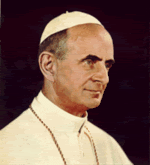 The Diocese of San José will once again honor liturgical ministers of our parishes who qualify for the annual Pope Paul VI Award (learn more about Pope Paul VI
The Diocese of San José will once again honor liturgical ministers of our parishes who qualify for the annual Pope Paul VI Award (learn more about Pope Paul VI 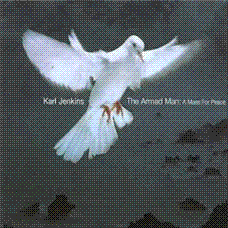
 Don't cantor like this! Learn the basics that will improve your singing technique and your leadership skills, and practice the habits that will make you a better leader of musical prayer.
Don't cantor like this! Learn the basics that will improve your singing technique and your leadership skills, and practice the habits that will make you a better leader of musical prayer.
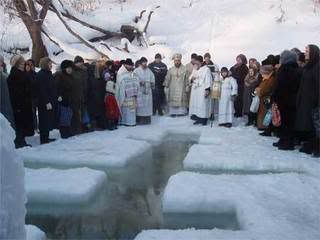
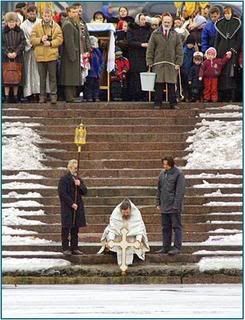
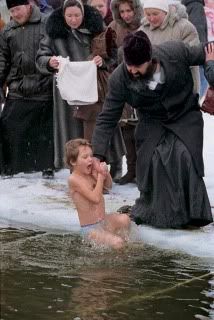
 Today's news from
Today's news from 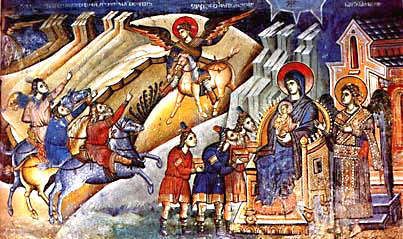
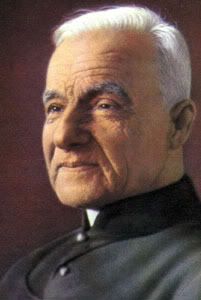
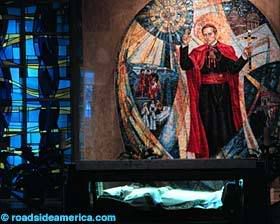
 The Solemnity of the Epiphany is a traditional time to announce the major feasts and celebrations of the Church for the upcoming year. Before the advent of online calendars, Treos, perpetual calendars, and handheld organizers, the formal announcement at Epiphany was the usual way the Church made known the date of Easter and all the celebrations that are dependent upon its date.
The Solemnity of the Epiphany is a traditional time to announce the major feasts and celebrations of the Church for the upcoming year. Before the advent of online calendars, Treos, perpetual calendars, and handheld organizers, the formal announcement at Epiphany was the usual way the Church made known the date of Easter and all the celebrations that are dependent upon its date.

 Now that you've almost recovered from the Christmas weekend marathon, the liturgical calendar throws us another challenge. Ash Wednesday comes early this year—February 21. That’s right around the corner! Yikes, we aren’t even finished with Christmas yet! Are you ready for Lent? And the Triduum?
Now that you've almost recovered from the Christmas weekend marathon, the liturgical calendar throws us another challenge. Ash Wednesday comes early this year—February 21. That’s right around the corner! Yikes, we aren’t even finished with Christmas yet! Are you ready for Lent? And the Triduum?
 The Christmas season, especially the feast of the Epiphany, is a traditional time to bless homes. The
The Christmas season, especially the feast of the Epiphany, is a traditional time to bless homes. The